Search
Search Results

Article
Battle of Lundy's Lane
The Battle of Lundy's Lane (25 July 1814) was one of the bloodiest battles of the War of 1812. Fought near the location of present-day Niagara Falls, it saw a US army under Jacob Brown clash with a British force under Gordon Drummond. Although...

Article
The Norse in America: Fact and Fiction
The idea that it was the Norse who discovered America first emerged in the late 18th century, long before there was any public awareness of the sagas on which such claims were based. In the course of the 19th century, evidence for a Norse...

Definition
Mandala
A mandala (Sanskrit for “circle”) is an artistic representation of higher thought and deeper meaning given as a geometric symbol used in spiritual, emotional, or psychological work to focus one's attention. The image first appears in India...
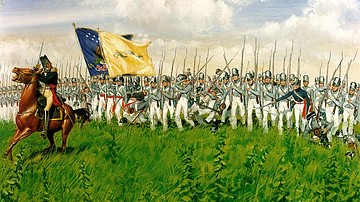
Article
Battle of Chippawa
The Battle of Chippawa (5 July 1814) was a major battle in the War of 1812, in which a US army proved its newfound discipline by defeating British regulars during the Americans' third attempted invasion of the Niagara Peninsula. Though the...
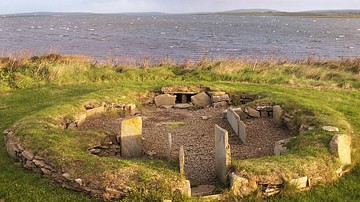
Definition
Neolithic Period
The term Neolithic Period refers to the last stage of the Stone Age - a term coined in the late 19th century CE by scholars which covers three different periods: Palaeolithic, Mesolithic, and Neolithic. The Neolithic period is significant...
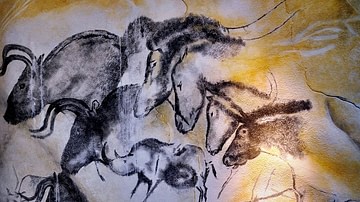
Definition
Stone Age
From the dawn of our species to the present day, stone-made artefacts are the dominant form of material remains that have survived to today concerning human technology. The term “Stone Age” was coined in the late 19th century CE by the Danish...
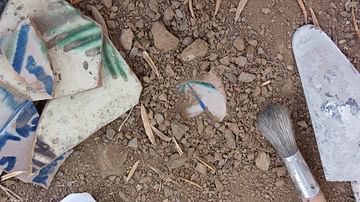
Definition
Archaeology
Archaeology is a wide subject and definitions can vary, but broadly, it is the study of the culture and history of past peoples and their societies by uncovering and studying their material remains, i.e. tools, ruins, and pottery. Archaeology...
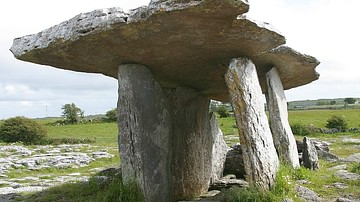
Definition
Dolmen
A dolmen is a megalithic structure typically formed from a large horizontal stone slab resting on two or more upright slabs. The oldest European examples are found in Brittany, northern France, and date to the 5th millennium BCE. Dolmens...

Image
Loki Gives Sif the Gold-Spun Hair
An image presenting the trickster Loki giving Sif newly-made gold-spun hair. Loki was an entity in Norse mythology who was involved in misdeeds against multiple gods and mortals. One of them was cutting off the golden hair of Sif, the goddess...

Article
Theodora: A True Heroine?
Was Theodora I, the wife of Emperor Justinian of Byzantium (reigned 527 - 565 CE), a heroine? The historian Treadgold calls her a protectress of women, as she used her influence to help them gain rights. She is also seen in popular legend...